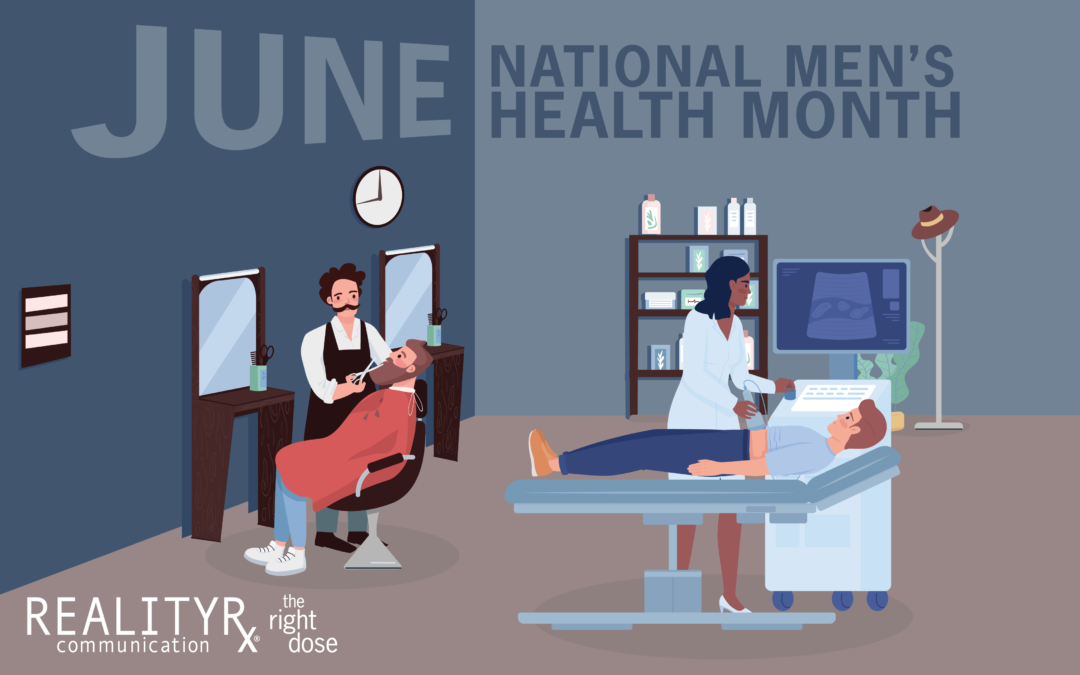June is National Men’s Health Month—a time for men to reflect on their health and for the world to raise awareness about health problems men face today. This month highlights the importance of healthy diet, exercise, and mental well-being. But most importantly, it aims to inspire men to get regular check-ups and screenings, which often fall to the wayside more frequently than by women.
Understanding the Barriers to Men’s Health
Men missing appointments and health screenings is not usually due to forgetfulness or stubbornness—various factors, including convenience, play a significant role. A Cleveland Clinic survey found that 61% of men would be more willing to make annual check-ups if appointments were more convenient. Accessibility is another major barrier, especially for minority groups and rural populations. Men in rural areas face long travel distances to healthcare facilities, while language barriers, cultural differences, and lack of resources can further restrict access for others.

Bringing Healthcare Services to Local Communities
More unconventional strategies are needed to make health screenings more convenient and accessible for men. One successful approach is meeting them where they are, by using trusted community spaces like barbershops to promote health awareness and offer screenings. These familiar and welcoming environments can provide spaces for open dialogue and trust, making them ideal for health education.
Isiah Skinner Jr, the owner of Skinner’s Barbershop in Morgan City, LA, has been hosting preventative cancer screenings and educational events for years. His efforts were so successful that they resulted in a $2.3 million grant partnership with the United Health Foundation to expand the reach even further.
How to Leverage Health Tools and Resources
Including tools and resources in marketing tactics toward healthcare providers and their patients is a great way to overcome some of these barriers. To improve screening accessibility, the following tools have proven effective:
- Healthcare Mobile Apps: Recommending mobile apps, like MyChart and HealthTap, can help men manage their health more conveniently. These apps provide features such as appointment scheduling, personalized health reminders, and access to test results. They also offer educational content on preventive health measures and screenings, making it easier for men to keep track of everything.
- Financial Assistance Programs: The National Association of Free & Charitable Clinics is a nonprofit dedicated to helping people find free or nonprofit medical care in their local communities. They can sometimes help cover costs for essential screenings like blood pressure, cholesterol, and cancer checks.
- Interactive Map of Local Health Departments: The National Association of County Health Officials offers an interactive map on their website where people can find medical care and screening services by zip code. It can help men connect with healthcare providers who can perform necessary screenings.
- Mobile Testing Services: Mobile testing units usually travel to workplaces, schools, and community centers, offering screenings for conditions like diabetes, hypertension, and cholesterol. They are equipped with healthcare professionals and necessary medical equipment, making it easier for individuals to get screened without having to visit a clinic or hospital.
Our Role in Promoting Men’s Health
At REALITYRx, we are continually working on new strategies to help our clients reach their audiences more effectively. By implementing innovative approaches like those mentioned above, we can help healthcare providers in improving outcomes for their male patients. Happy Men’s Health Month!
If your brand team would like to know more about our agency approach, contact Jon or Hoon at RRx. Let’s talk.
REFERENCES:
- Cleveland Clinic survey: men will do almost anything to avoid going to the doctor. Cleveland Clinic Newsroom. Cleveland Clinic. September 4, 2019. Accessed June 18, 2024.
- Hole MK, Letchuman S, Chang A, Berry LL. Community health partners in unexpected places. Mayo Clin Proc. 2023;98(12):1833-1841. doi:10.1016/j.mayocp.2023.07.031
- Releford BJ, Frencher SK Jr, Yancey AK. Health promotion in barbershops: balancing outreach and research in African American communities. Ethn Dis. 2010;20(2):185-188. PMID: 20503901; PMCID: PMC4244298.
- “Barbershop Bashes” help reduce health disparities through cancer screening. UnitedHealth Group. Accessed June 18, 2024. https://www.unitedhealthgroup.com/newsroom/posts/2023/2023-10-26-barbershop-bashes-help-reduce-health-disparities.html.
- Teo CH, Ng CJ, White A. What do men want from a health screening mobile app? A qualitative study. Choo KKR, ed. PLoS One. 2017;12(1). doi:10.1371/journal.pone.0169435.
- Free and low-cost cancer screenings, testing and vaccinations. Prevent Cancer Foundation. Accessed June 18, 2024. https://www.preventcancer.org/resource/free-and-low-cost-cancer-screenings-testing-and-vaccinations/

